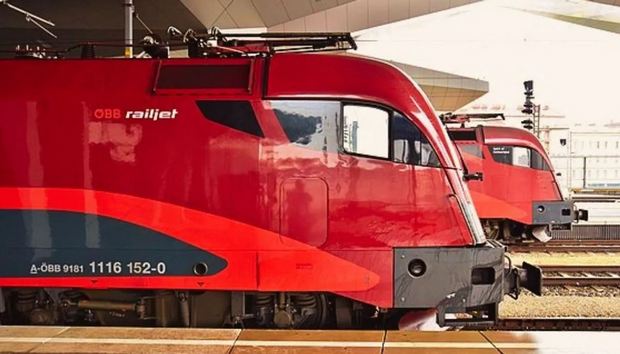Austrian passenger train shows 30% energy saving with CO2 air-conditioning

In a three-year research study testing the viability of German manufacturer Liebherr’s CO2 (R744) air-conditioning system on a long-distance passenger train, the “eco2jet” project showed an energy efficiency improvement of 30%.
The study concluded that this system is a “reliable and technologically mature concept.”
The aim of the project was to develop an environmentally friendly CO2 air-conditioning system for rail vehicles as an alternative to HVAC systems operated with conventional refrigerants, according to a recent statement by Liebherr.
To this end, a near-production “Fast Track Demonstrator” (FTD) for an HVAC system with heat pump functionality using CO2 was developed and installed in a passenger coach from the Railjet fleet operated by the Austrian Federal Railways (ÖBB) – also a project partner.
The primary objective of the project was to meet the comfort criteria of the passengers in a wide operating range with low environmental impact by using novel heat exchangers, an advanced system architecture and an intelligent control strategy in the future.
Compared to conventional air-conditioning systems, “an increase in energy efficiency by at least 30% in real rail transport is achieved” with the eCO2jet HVAC system with a heat pump function, according to research findings.
Wider use possible beyond rail
The use of the refrigerant R744 in air-conditioning represents an “innovative, future-oriented technology” for applications in the railway sector,” according to the research findings. Systems and components can be used not only for long-distance trains but also for local trains, trams, or subways. Subsequently, non-rail vehicles such as trucks, cars and airplanes will also benefit from the eco2jet solution, the researchers said.
